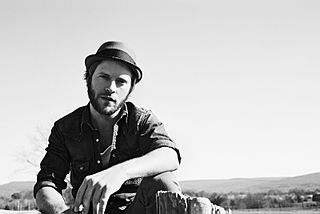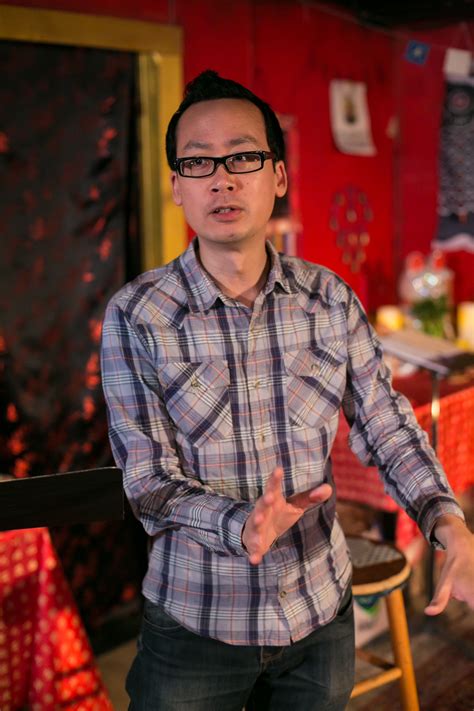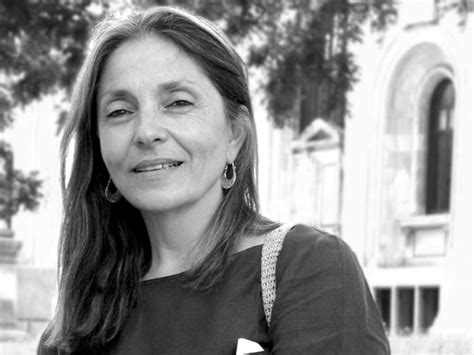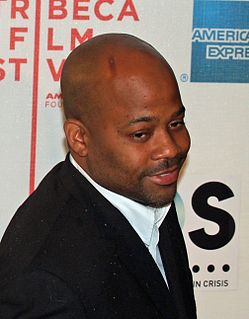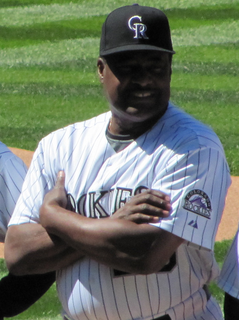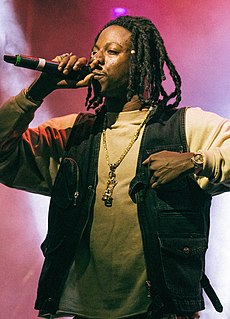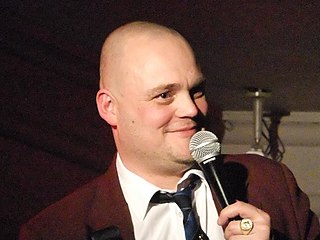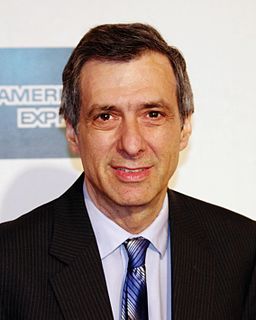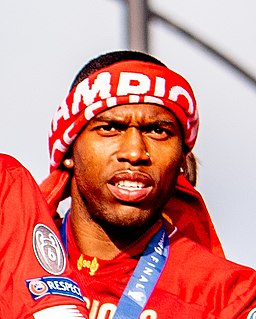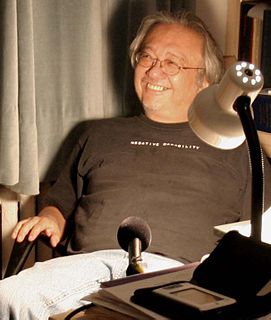Top 1200 Trayvon Martin Quotes & Sayings - Page 19
Explore popular Trayvon Martin quotes.
Last updated on November 15, 2024.
"March" was inspired by "Martin Luther King and the Montgomery Story." I actually first heard about that comic from John Lewis, who told me that it played an important role in the movement. And so once he told me about that, it made me start thinking, "Well, why doesn't John Lewis write his own comic book?".
When John Kennedy was assassinated I was twenty-three, a stockbroker on Wall Street and married, and I never ever thought that politics would be anything that I would be a part of. But I realized that I had to get involved. Then, when Martin Luther King was assassinated and the Vietnam War was raging, I felt that my world was falling apart. I had these two beautiful children - three and one - and I just said, "I have to make it better."
We have come a long way in America because of Martin Luther King, Jr. He led a disciplined, nonviolent revolution under the rule of law, a revolution of values, a revolution of ideas. We've come a long way, but we still have a distance to go before all of our citizens embrace the idea of a truly interracial democracy, what I like to call the Beloved Community, a nation at peace with itself.
Being a progressive himself, Franklin Roosevelt was talking about the fact that we should provide jobs for everyone who wants one. People do have a right to live in decent housing. They do have a right to education. FDR was preaching this gospel in the '30s, and Dr. Martin Luther King did the same thing in the 1960s with the Poor People's March on Washington. Folks in this country have these rights and it's the job of this country to answer this call.
I tend to gravitate towards the great rock-and-roll front men, the guys that are very "bare bones." I like Bono, I like Chris Martin(Coldplay) and I like the running around. I think they are amazing at it, but I think that there is something great about a guy that can captivate a room, and very little movement and running everywhere.
Karen Russell learned to think from her father, someone Peter Gammons knows well, Boston Celtics legend Bill Russell, who used his prominence to support Martin Luther King Jr., to support the civil rights movement, and other important work, including work in Africa throughout his career. And Bill Russell is still at it.
I remember when Martin Luther King was assassinated and riots broke out in the city. We celebrated Palm Sunday on 14th Street. I have a memory of walking down the street with buildings smoldering, and soldiers and cops everywhere. Anyways, it [St. Stephen’s] was a church that really taught me the things I needed to learn to not go to church. But I think it is a church that does great work, I went to a wedding there three days ago.
It is my hope that everyone's valiant efforts will have a ripple effect that will carry us forth into a fairer future. 'The arc of the moral universe is long,' said Martin Luther King Jr., 'but it bends toward justice.' And because I have been witness to so many people who lent their support to this good cause, I am lifted up by them -- lifted up so high that I can see the end of that arc.
For Martin Schulz, the chancellor candidate for the center-left Social Democrats, friendly wishes don't go far enough. He would like to see much more enthusiastic support for Emmanuel Macron than that shown by Chancellor Angela Merkel, whose comments so far have tended to be reserved. As she put it, she doesn't see a need to change her policies because of Macron.
[Pope Francis] continued to focus on migrants. He visited the Greek island of Lesbos, which was the front line of the European migrant crisis. And a month later, he accepted a prestigious European Union prize, but he scolded Europe for its treatment of migrants. And in a speech echoing Martin Luther King, he said I have a dream of a Europe where being a migrant is not a crime. So, yeah, he showed he can be quite outspoken on political issues.
Faith can cut in so many ways. If you're penitent and not triumphal, it can move us to repentance and accountability and help us reach for something higher than ourselves. That can be a powerful thing, a thing that moves us beyond politics as usual, like Martin Luther King did. But when it's designed to certify our righteousness - that can be a dangerous thing. Then it pushes self criticism aside. There's no reflection.
Getting hold of illegal weapons is so easy that gun laws would not stop anyone who really wanted to kill. The gun used by Martin Bryant in Port Arthur was stolen and he had no licence. Gun laws would not have stopped that, but the reason such laws are being introduced all over the world is to prevent the population from defending themselves when the order goes out to round up those who are challenging the Agenda.
Kid?” – Kyrian “I’m not worthy.” – Nick “What?” – Kyrian “Dude, that’s a Ferrari, Lamborghini, Bugatti, Alfa Romeo, Aston Martin, and Bentley. And I’m not talking the cheap models. Those are the top of the top of the top of the line, fully loaded. I swear, that’s real gold trim in the Bugatti. There’s more money in metal in here than my brain can even tabulate. Oh my God! I shouldn’t even be breathing the same air.” – Nick
I was involved in the civil rights movement way back in the late '50s and through the '60s and '70s. I was doing a civil rights musical here in Los Angeles and we sang at one of the rallies where Dr. Martin Luther King spoke, and I remember the thrill I felt when we were introduced to him. To have him shake your hand was an absolutely unforgettable experience. Even before I could vote, I was involved in the political arena.
Big dreams are risky business. The psyche can be fiendish, puckish, exalted, imperious, tender, sardonic, faithful, pestilential--whatever rivets our attention upon the task of psychic growth. It is not so hard to find at least a little sympathy for theologian Martin Luther, who prayed to God not to send him any dreams at all, fearful he could not distinguish between those of divine origin and those sent by the Devil.
On my twelfth birthday, I got a new bicycle as a present from my folks, and I rode it to a fair that was being held at the Columbia Gymnasium, and when I come out, my bike was gone. I was so mad I was crying, and a policeman, Joe Martin, come up and I told him I was going to whip whoever took my bike. He said I ought to take some boxing lessons to learn how to whip the thief better, and I did. That's when I started fighting.
I think what a lot of people don't realize is how much being the leader of this movement weighed upon him. After all, he [Dr. Martin Luter King] was only 39 years-old when he was assassinated, and only 36 during the Selma campaign. He always seemed older than he actually was, and I believe part of that had to do with just how much life he had to live in order to lead this movement.
It's hard to see a film one time and really "get it," and write fully and intelligently about it. That's a review. That's not film criticism. And there's so many expectations involved, too. You're going in to see the latest Martin Scorsese or Stanley Kubrick film, you really have high hopes, and you can't help but find that it's not exactly what you had in your head going in. Until you can watch it again, you can't accept the work for what it intends to be. It takes at least a second viewing.
If the Rev. Martin Luther King Jr.'s civil rights movement made demands that altered the course of American lives and backed up those demands with the willingness to give up your life in service of your civil rights, with Black Lives Matter, a more internalized change is being asked for: recognition.
When I was 15 years old in the tenth grade, I heard Martin Luther King, Jr. Three years later, when I was 18, I met Dr. King and we became friends. Two years after that I became very involved in the civil rights movement. I was in college at the time. As I got more and more involved, I saw politics as a means of bringing about change
The thing that would probably surprise most people was that Dr. Martin Luther King was a very reluctant leader. He felt very shocked at times that he had been chosen for this path, but he also understood that he was chosen for this path. He had several moments of acute doubt as to if he was up for the task - when people were injured in the protests he took it very personally, let alone when they were killed.
I don't think my success or me having the opportunity to have success is from our generation. I think it's from the generations before us. I think it's the fact that people like Martin Luther King and Medgar Evers and people like that fought for us to have the freedom to do and say what we want and have the opportunity to make money.
All talks about legacies of white supremacy must be tied to empowering the lives of poor and working people as a whole. The black agenda - from Frederick Douglas to A. Philip Randolph, Martin Luther King Jr, Fannie Lou Hammer to Ella Baker - has always been tied to race talk inseparable from expanding possibilities of democracy, expanding empowerment of everyday people.
We [Americans] know Martin Luther King Jr. as a statue. We know him as a holiday. We know him as a speech. We don't know him as a man. Most people don't even know the whole speech, just "I have a dream." They don't know what his speaking voice was like, how he looked at his wife, or that he had four kids.
Every person born into the world represents something new, something that never existed before, something original and unique....If there had been someone like her in the world, there would have been no need for her to be born." --Martin Buber as quoted in Narrative Means for Sober Ends, by Jon Diamond, p.78
When I was 15 years old and in the tenth grade, I heard of Martin Luther King, Jr. Three years later, when I was 18, I met Dr. King and we became friends. Two years after that I became very involved in the civil rights movement. I was in college at that time. As I got more and more involved, I saw politics as a means of bringing about change.
It is so inspiring to see a new group coming together not to focus on a particular war or weapons system, but on all war-everywhere. And it's great to have such beautifully crafted arguments about why war is not inevitable and how war contributes to so many other global ills. This coalition is worthy of Martin Luther King's call to end violence and instead put our energies and resources into 'life-affirming activities.' Bravo!
To stand together against homophobic, sexist, misogynistic, anti-Semitic and racist agendas. I’m an optimist and I can’t help but feel hopeful about the future of film - especially looking at all the beautiful people in this room. Martin Luther King Jr. said, ‘Our lives begin to end the day we become silent about things that matter.’ I would like to encourage everyone in this room to please speak up.
I've always believed that poetry must speak of realities as least as complicated as those spoken of in prose. I've read books of poems, even single poems, which are, for me, at least the equivalent of a short story or a novel. Martin Amis, in an interview with Saul Bellow in the early eighties, quotes Bellow asking, "Why not address 'the mysterious circumstance of being', say what it's like to be alive at this time, on this planet?" This has been and still is my ambition.
I had never done anything with blue screen before, or prosthetics, or anything like that. Lord of the Rings was like stepping into a videogame for me. It was another world completely. But, to be honest, I basically did it so that I could have the ears. I thought they would really work with my bare head.Working with Martin Scorsese was an absolute minute-by-minute education without him ever being grandiose about it.
Remember, this is back in the '40s, and the idea of a museum being a place where interested people could come in direct contact with works hadn't arrived on the scene yet. That, I think, I first ran into at the Freer Gallery in Washington, D.C., where a man named Marty [Martin] Amt decided that he really felt his job - part of his job, as an assistant [to the] director was to make the collection available to interested people.
Unless you had developed a certain independence of value, a certain independent system of value, a system of values that was independent from this middle-class drive for recognition. This has been my explanation of part of [Martin Luther King] general role. So, he accepted this without too much resistance. In fact, none that I could ever see, and at certain points I was close enough to see something.
I figure if Doc is right about the time I have left,I should wrap up my adolescence in the next few days, get into my early productive stages about the third week of school, go through my midlife crisis during Martin Luther King Jr's birthday, redouble my efforts at productivity and think about my legacy, say, Easter, and start cashing in my 401(k)s a couple weeks before Memorial Day.
I was watching lectures by Malcolm X, Martin Luther King, Dr. Sebi and Umar Johnson. It's super mind opening when you listen to those words and think about how much they still resonate today. Think about how true those words are, and how much they predicted the future. That was what was really mind-boggling to me.
Roxanne came along in '86, when I was doing a lot of stand-up. I auditioned for the movie, and of course I was a huge Steve Martin fan, so I really hoped I would get this part. I don't think there was any part in particular that I auditioned for. I just went in and talked with them. There were so many parts in there, and so many comedians ended up getting in that movie, playing different firemen and townspeople.
For me and Michelle, this visit has therefore held special meaning. Throughout my life, including my work as a young man on behalf of the urban poor, I have always found inspiration in the life of Gandhiji and in his simple and profound lesson to be the change we seek in the world. And just as he summoned Indians to seek their destiny, he influenced champions of equality in my own country, including a young Martin Luther King
I wrote a post about wanting to buy a banjo - a $300 banjo, which is a lot of money, and I don't play instruments; I don't know anything about music. I like music, and I like banjos, and I think I probably heard Steve Martin playing, and I said, 'I could do that.' And I said to my husband, I said, 'Ben, can I buy a banjo?' And he's like, 'No.'
Seriously, if you want to get inside the head of a stand-up comic, you could do a lot worse than reading Steve Martin's Born Standing Up, all about how he developed his career and his creativity as a comedian. Lots of what he talks about is relevant to anyone in the creative arts - you find yourself, your voice, your technique and then maybe luck calls.
When you feel depressed, it helps to actively change your environment. Go and do something different. Martin Luther conquered his depression by going outside to work in his garden. Surprisingly enough, one of the best ways to handle depression is to go to work immediately on the task you least enjoy. (The chances are your depression is caused by guilt feelings arising out of neglect of those tasks.)
Did you ever stop to thnk about all the people we kill? They're always people who tell us to live together in harmony and try to love one another: Jesus, Ghandi, Lincoln, John Kennedy, Bobby Kennedy, Medgar Evers, Malcolm X, Martin Luther King, John Lennon. They all said: 'Try to live together peacefully.' BAM! Right in the f--in head! Aparently we're not ready for that!
Her voice was as rough as sandpaper. As long as Blomkvist lived, he would never forget her face as she went on the attack. Her teeth were bared like a beast of prey. Her eyes were glittering, black as coal. She moved with the lightning speed of a tarantula and seemed totally focus on her prey as she swung the club again, striking Martin in the ribs.
Martin said, "It feels as though part of my self has detached and gone to Amsterdam, where it—she—is waiting for me. Do you know about phantom-limb syndrome?" Julia nodded. "There's pain where she ought to be. It's feeding the other pain, the thing that makes me wash and count and all that. So her absence is stopping me from going to find her. Do you see?
Martin Luther described the doctrine of justification by faith as the article of faith that decides whether the church is standing or falling. By this he meant that when this doctrine is understood, believed, and preached, as it was in New-Testament times, the church stands in the grace of God and is alive; but where it is neglected, overlaid, or denied, ... the church falls from grace and its life drains away, leaving it in a state of darkness and death.
In its essence, Martin Luther King Jr.'s ‘I Have a Dream' speech is one citizen's soul-searing plea with his countrymen––Whites and Blacks––to recognize that racial disparities fueled by unwarranted bigotry were crippling America's ability to shine as a true beacon of democracy in a world filled with people groping their way through suffocating shadows of political turmoil, economic oppression, military mayhem, starvation, and disease.
It is cheering to note that [Martin] Luther (1524) did not see why schools should not be fun as well: "Now since the young must leap and jump, or have something to do, because they have a natural desire for it which should not be restrained (for it is not well to check them in everything) why should we not provide for them such schools, and lay before them such studies?
From the moment I met Martin Scorsese in 1962, he educated me about the films that had taught him so much about filmmaking. He had been deeply affected, even as a child, by great films that stretched his mind and struck into his heart, and he was eager to share them with friends and people who worked with him or with actors who were in his films.
I've always been inspired by Dr. Martin Luther King, who articulated his Dream of an America where people are judged not by skin color but "by the content of their character." In the scientific world, people are judged by the content of their ideas. Advances are made with new insights, but the final arbitrator of any point of view are experiments that seek the unbiased truth, not information cherry picked to support a particular point of view.
Confronting the intolerable should be challenging and upsetting. Who could read the testimonies of Primo Levi and not feel intellectually and emotionally exhausted? Or Martin Luther King Jr.'s words, not to mention those of Malcolm X? It is the conditions that produce violence that should upset us ethically and prompt us to act responsibly, rather than to capitulate to a privatized emotional response that substitutes a therapeutic language for a political and worldly one.
Actually, I can't stand watching violent scenes in films; I avoid watching horror films. I don't tend to watch action films mainly because I find them boring, but I watch the films of David Cronenberg and Martin Scorsese, usually in a state close to having a heart attack. I'm a complete coward. I make violent films as a result of my sensitivity to violence - in other words, my fear of violence.
How, then, has Obama been saddled with an image of being long on inspiration and short on details? The answer is that journalists are not accustomed to covering a candidate who moves crowds the way Obama does, who uses speech cadences and rhythm like Martin Luther King Jr. without making his talk explicitly about race. Sen. Clinton already owned the policy-wonk slot, so by default, Obama was cast as the poetic one.
Sometimes it's moments like that, real complicated moments, absorbing moments, that make you realize that even hard times have things in them that make you feel alive. And then there's music, and girls, and drugs, and homeless people who've read Pauline Kael, and wah-wah pedals, and English potato chip flavors, and I haven't even read Martin Chuzzlewit yet... There's plenty out there.
King Hussein of Jordan dedicated his life - I witnessed it in his sleeping as well as waking hours - to trying to break through the impasses keeping people apart. He understood that the security and prosperity of any one of us in this world depends on the security and prosperity enjoyed by others. As Martin Luther King said, "Injustice anywhere is a threat to justice everywhere." In the Middle East, nothing could be more true.
I have written 5 books that address major figures in our culture: books on Malcolm X, Martin Luther King Jr., Tupac Shakur, Marvin Gaye and Bill Cosby. But even in the books that take up major figures, I hope to provoke conversation, insight and understanding about these personalities by providing new, fresh and vital information and analysis about them.
There's never been a film with Dr. Martin Luther King, Jr. at the center released in theaters. Ever! One does not exist. You've only seen tele-films and stage plays about him. Yet, we have big screens biopics about all kinds of people. So, I think it's only right that there be a full-length feature about Dr. King. I don't think there could be enough of them, but there should be at least one. So, here it is!
Christians got a lot of work to do. But, the spirit of Dorothy Day is alive. Martin Luther King is still alive. Malcolm X and the prophetic Islamic tradition is still alive. We can't lose sight of those prophetic religious folk who, even given their kin in the same tradition, says, you all are wrong on this, but we're still in the same tradition.
What does it mean when you hook up your work to that of a late modernist giant working in a reductive vein - Ad Reinhardt, Agnes Martin, Robert Ryman, Ellsworth Kelly, Frank Stella, or Donald Judd, for example - like a caboose? I am not talking about engaging directly with another artist's work or ideas, but of perpetuating a look or, in the case of Wade Guyton, the various monochromatic, striped and geometric surfaces we associate with Minimalism.





